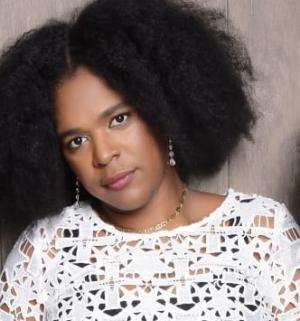Child Q and anti-racist safeguarding

Published by Professional Social Work magazine, 13 April, 2022
As a Black woman, mother, daughter, social worker and educator, I am horrified, but sadly not surprised, by the abuse suffered by Child Q at the hands of the adults who had been tasked to keep her safe.
This 15-year-old Black teenage girl was strip-searched by Metropolitan Police officers while on her school premises.
Racism and sexism have a detrimental effect on my identity as it would for Child Q and these ‘dis-eases’ are inherent in every level of our social system.
We saw these being played out in the decision made by the police officers and teachers to allow the strip search.
‘Misogynoir’ is misogyny directed at Black women and girls when race and gender play a role in the bias. ‘Adultification’ is also a key factor, in which Black children are perceived as older than they are and as a result are not afforded the protections and safeguards they would receive if they were white.
But this is not about one child, in one school in the East End of London. There is an urgent need for attention to be paid to issues of structural, institutional, and systemic racism in the UK and the social work sector is no exception to this.
What do I mean by anti-racist safeguarding?
According to anti-racist activist Ibram X Kendi: “The heartbeat of anti-racism is self-reflection, recognition, admission, and fundamentally self-critique”. Safeguarding children is defined in the UK government’s Working Together to Safeguard Children document as “protecting children from maltreatment, preventing impairment of children's health or development, and ensuring that children are growing up in circumstances consistent with the provision of safe and effective care”.
Therefore, as a profession we have two choices: either we allow racial inequities to continue OR we confront racial inequities. There is no in-between safe space of ‘non-racist’. The claim of ‘non-racist’ neutrality is a mask for racism.
Before we can tackle racism in social work, we must understand how it began – with the social construction of whiteness. This identity was created by upper-class colonialist to distinguish themselves from servants and slaves.
In her book Why I am no longer talking to white people about race, Reni Eddo-Lodge defines white privilege as an absence of the consequences of racism - an absence of structural discrimination and an absence of your race being viewed as a problem first and foremost.
Dismantling systems that perpetuate racism should not be left to Black and diverse communities alone to deal with. The problem is whiteness, not blackness.
As an educator, I have designed a course to share theoretical and research-informed knowledge in relation to racism and the notion of becoming anti-racist allies. The aim is to invite practitioners to think about anti-racist practice with the people they support and within their organisations and teams.
The course holds relationship-based, anti-racist practice at its heart and is based on a model for achieving emotionally intelligent, critically reflective, curious conversations, in a safe space.
Practitioners are invited to consider their own individual identity and position in relation to power, white privilege and Black and diverse empowerment and develop their own personal mission statement to take forward into their practice.
Despite our value base of social justice, human rights, anti-discriminative, anti-oppressive and anti-racist practice, we still have a very long way to go in becoming an anti-racist workforce.
